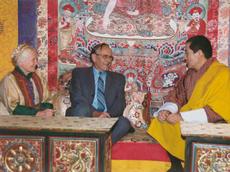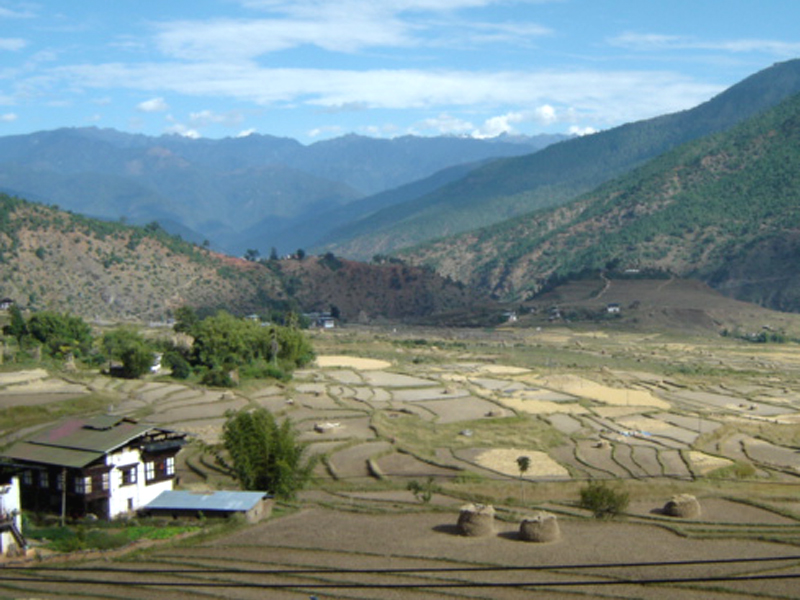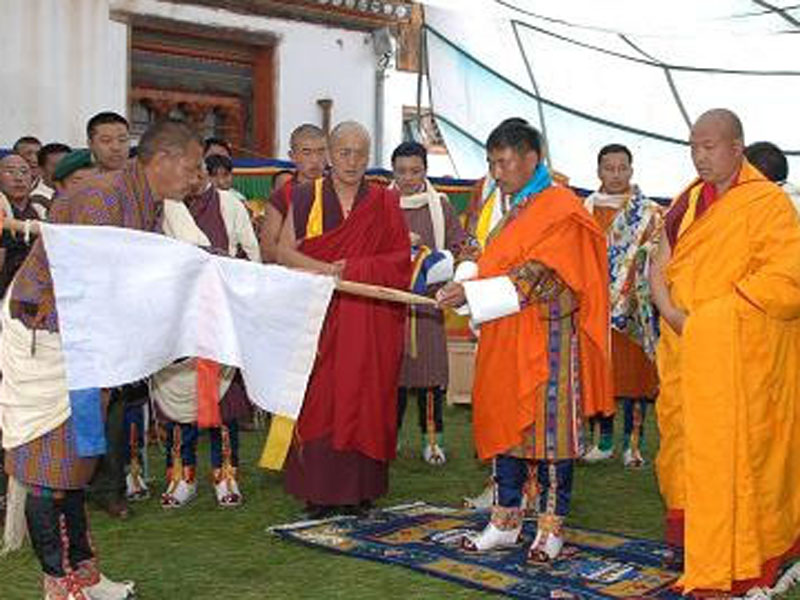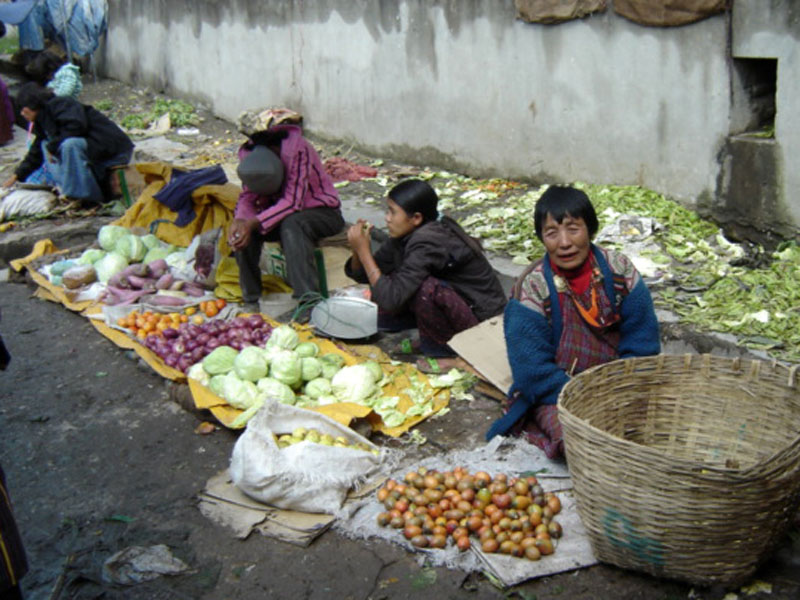Know-how for a kingdom
Swiss development aid is under discussion. According to Swiss Secretary of State Micheline Calmy-Rey, the SDC (Swiss Agency for Development and Cooperation) needs reorganizing. Bhutan is a prime example of successful long-term development aid from Switzerland and in particular, ETH Zurich.

Bhutan is roughly the same size as Switzerland but has a population of only 700,000. The Himalayan nation was the key focus for the SDC between 1983 and 2006, and also supported a joint program with Helvetas (the Swiss Association for International Cooperation) during that time. The Swiss-Bhutanese collaboration focused on agriculture and forestry, agrarian infrastructures and education from the outset. There is also a regular discourse between the two countries as regards the Swiss political system, including the subject of federalism, the decentralization of competences, democracy, rights and the representation of various minorities. A few years ago, the enlightened King of Bhutan initiated the democratization of his country. After his abdication, his son, King Jigme Khesar Namgyal Wangchuk introduced democracy to his people with the transition from an absolute monarchy to a constitutional one. The people, who fiercely defend their traditions, finally voted in the first democratic elections in March.
ETH Zurich dedication pays off
ETH Zurich has been operating in Bhutan for decades and provides ongoing support for the country in terms of education. Martin Menzi, Professor of Animal Production and Problems of Developing Countries, has often been to Bhutan on behalf of the SDC and Helvetas since 1973. Back then, the country was just beginning to open up after centuries of isolation from its surroundings. Menzi mainly advised the government on livestock breeding, dairy farming and agrarian development. From 1988 onwards, his main focus in Bhutan – by then, he was the director of NADEL (Post-graduate Studies for Developing Countries at ETH Zurich) – was education. For example, he was involved in the construction of the agricultural technical school, which is now the Faculty of Agriculture at the university in the capital city Thimpu. As early as 1992, Menzi's suggestion that students from Bhutan should be allowed to complete their doctoral theses at ETH Zurich met with the acceptance of the then Prorector for doctorate studies, Kurt Dresssler. So far, seven Bhutanese agronomists and engineers have obtained doctorates from ETH Zurich. Two of them now work for international organizations and the remaining five are putting their knowledge to good use in their homeland. Some track record for Swiss development aid.
New perspectives for agriculture
The second Bhutanese ETH Zurich doctor, Pema Gyamtsho completed his PhD under the supervision of plant scientist Josef Nösberger in 1996 with his dissertation “Assessment of the Condition and Potential for Improvement of High Altitude Rangelands of Bhutan”. Gyamtsho has been Bhutan’s Minister of Agriculture since April and is helping to forge the future of agriculture in his country as a member of Bhutan’s first democratically elected cabinet.
“Bhutan's agriculture is characterized by arduous, hard-to-reach terrain, an acute lack of manpower and mixed crop-livestock-tree farming,” explains Gyamtsho. He would now like to organize the farmers into producer groups and cooperatives to improve the efficiency and enhance the economy of scale. He wold also like to move from subsistence to commercial farming in selected products with potential for import substitution or export to third countries. Gyamtsho is looking to promote agriculture on the arduous terrain by introducing protective measures to prevent soil erosion and landslides. “I also want to advance the mechanization of our agriculture with smaller machines and equipment in order to reduce the daily toil, especially for women, and make farming more appealing”, states the Minister of Agriculture.
Practically half-Swiss
Gyamtsho is grateful that ETH Zurich opened many doors for him, both professionally and privately. He claims that it not only equipped him with the necessary expertise and skill for his present and future duties; under the watchful eye of his two professors Nösberger and Menzi, he became a good agronomist. “In my work, I frequently draw upon what I learnt at ETH Zurich and in Switzerland and the words of advice my mentors and colleagues there gave me, not least regarding the grasp of democracy and democratic systems,” assures the Bhutanese Minister of Agriculture. “They don’t call me half-Swiss here for nothing!” Seemingly, this was also acknowledged by former Federal Councillor and former SDC employee Ruth Dreifuss when she visited him in Bhutan recently. “She was delighted over how well I represent Switzerland!”
Martin Menzi, who is still very much involved with Pema Gyamtsho and Bhutan, assures that the Swiss camp has learned a lot about development processes during the longstanding collaboration with Bhutan. He also commends the active exchange. As far as the future of Bhutan is concerned, Menzi is cautiously optimistic: “There is still a lot of work to be done in the pending reconstruction of this little country, both economically and politically. However, I firmly believe that Bhutan has excellent prospects for a better future.”
Bhutan
This small, impoverished kingdom is situated in the Himalayas, nestled between its powerful neighbors India and China. For centuries, Bhutan was almost entirely cut off from the outside world. Since the 1970s, however, there has been a certain amount of openness, albeit while strictly preserving the old traditions. Wearing the national costume, for example, is compulsory. The Wangchuk dynasty has been in power since 1907. The country became a parliamentary democracy with a two-party system through the elections in March 2008, with the royalist Bhutan Harmony Party of former Prime Minister Jigme Thinley recording a landslide victory. The opposition, the People’s Democratic Party, also supports the monarchy.










READER COMMENTS